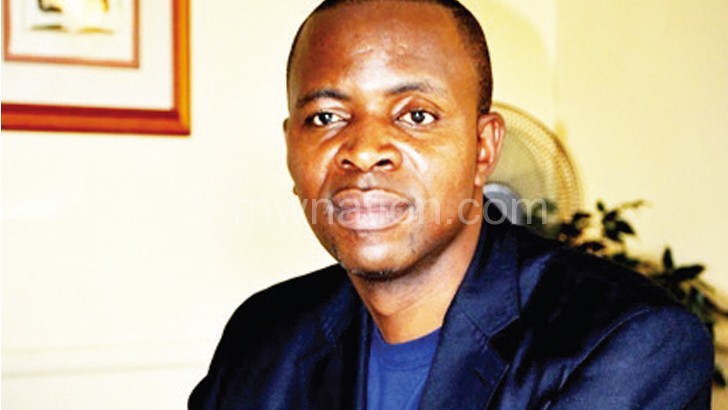Give us our dues!
Musicians Union of Malawi (MUM) says the country’s musicians continue to struggle financially partly due to erratic payment of royalties by some of the country’s media houses.
Broadcasting royalties, sometimes referred to as performance royalties, are fees paid to a musician when their music is performed, either over radio or in bars or clubs.
Mum president Chimwemwe Mhango, who is also chairs Copyright Society of Malawi (Cosoma) board, was reacting to the latest Cosoma report which discloses that several radon stations owe musicians millions of kwachas in broadcasting royalties.

He said: “We are not happy with the way some media houses are treating musicians in the country when it comes to payment of royalties. They are either erratic or unstable and this is affecting the socio-economic status of musicians and the development of Malawi’s music industry as whole.”
Malawian artists, especially musicians who contribute a lion’s share of royalties, continue to face an uphill task as far as economical benefits of their work are anything to go by. CDs are no longer fetching adequate revenue due to the massive piracy.
But Mhango said MUM is working with the Cosoma secretariat to find ways of dealing with the issue of erratic or non-payment of royalties by radio stations.
Mhango said: “One of the reasons the president of MUM was put in the Cosoma board was to look into such issues. And we will find strategies to make sure that musicians realise the fruits of their labour.”
According to Cosoma’s latest report, which covers the period of between July 2014 to June 2015, only K26 million ($44,262.9) was collected in the period under review from radio and television stations licensed by Cosoma.
However, the rightsholder society is still facing challenges with payment of royalties by Malawi Broadcasting Corporation (MBC) and a few other broadcasting stations.
MBC alone owes Cosoma over K79 million ($134,491), which includes accumulated debts as well as current invoices for MBC radio and K7.8 million ($13,278.9) for MBC TV.
Matindi Radio Station, which owes the society K1.2 million ($2,042.90) has only paid K645 472 ($1,098.86) since last September.
Cosoma’s senior licensing officer, Rosario Kamanga, disclosed that society’s lawyers sent sheriffs to Matindi FM to collect the balance.
“The society is yet to get a report on this. On the other hand, Joy Radio whose case also went before the court, started paying K250 000 since September last year and, so far, K1.25 million has been collected,” he said.
The Cosoma report further says that a number of meetings were held to explore possibilities of the institutions clearing their debts.
However, MBC has been paying instllaments of K2 million every month and at the meeting which was held with MBC management in April 2015, it was agreed that MBC will work on increasing the installments and they proposed to continue paying K2 million every month plus an additional K3 million each quarter.
This has not been done, according to the report.
“The secretariat is still following up on MBC with meetings. The last meeting was in on August 5 2015 where MBC promised to come up with a definite proposed plan of payment to increase the monthly instalments,” he said.
Kamanga noted: “The challenges with broadcasting in Malawi still remains the same. Non-timely payment of copyright fees by most radio stations affects income flows to the society. Experience has shown that most broadcasting stations are struggling financially; hence, affecting remittance of royalties. The delays in payments are also as a result of lack of respect for copyright by most people working in stations either due to limited knowledge about copyright or mere disregarding of copyright issues.”
On public performances, Cosoma collected about K24.1 million, but the society is still following up on outstanding debtors.
And in an effort to improve adherence, the society introduced the use of police in public performance, which has proved to be more effective. n





